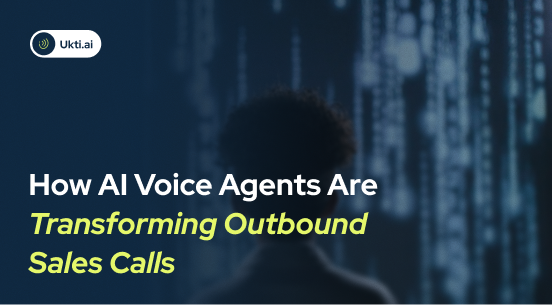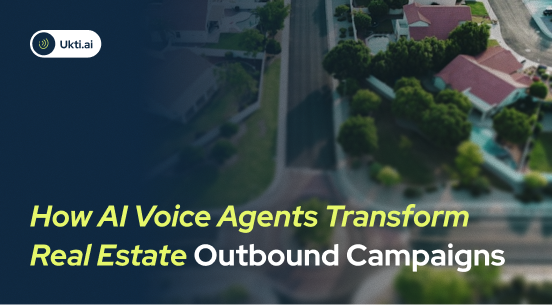Support teams are stretched thin. Customers are impatient. Expectations have shifted, but traditional voice systems haven’t kept up. When you’re engaging with clients, people expect fast, clear, human-like conversations. They don’t want to press endless buttons, wait on hold, or repeat themselves.
For outbound campaigns especially, relying on outdated IVRs (Interactive Voice Response) or overworked human teams can mean missed opportunities, slow follow-ups, and inconsistent experiences.
That is where AI voice agents step in. This guide explores 7 clear signs your business is ready for an upgrade and how AI voice agents can transform your outbound voice campaigns, boost customer engagement, and free your teams to focus on higher-value work.
What Are AI Voice Agents?
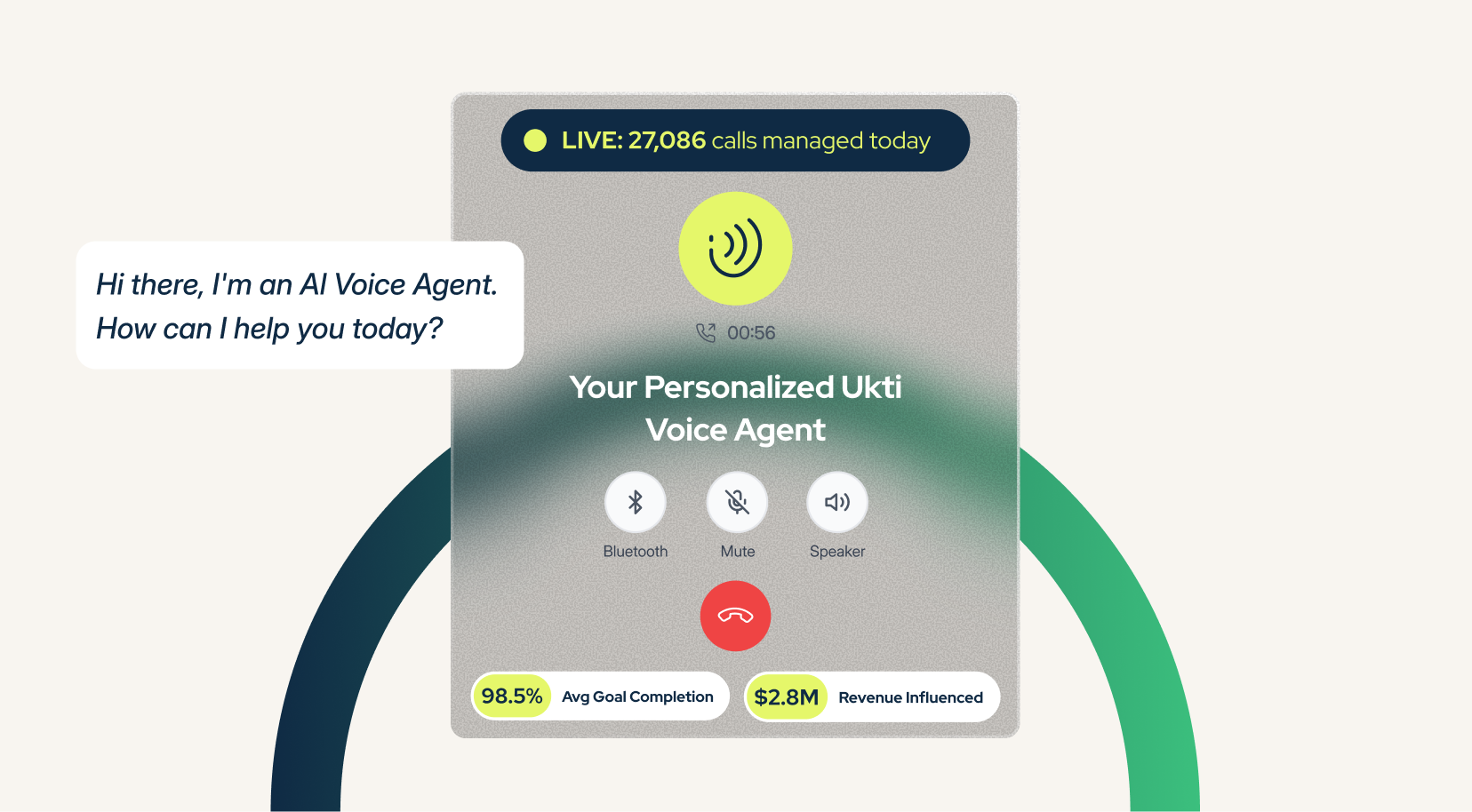
An AI voice agent is a software-driven system that can talk to humans through natural-sounding speech. It listens to what someone says, understands their intent, and responds intelligently in real-time.
It’s not just a basic voice bot with scripted answers. Today’s AI voice agents use large language models to understand context, tone, and even emotion. They are capable of handling complex conversations just as a trained human would.
In outbound operations, AI voice agents can:
- Reach out to prospects with personalized messaging
- Follow up on leads at scale
- Schedule or reschedule appointments without manual intervention
- Send reminders and nurture cold leads
- Gather feedback and qualify potential customers
In short, they’re helping businesses scale conversations without scaling headcount.
Voice Tech Pipeline: How It Works
To understand how AI voice agents talk and think, let’s look at the basic three-step pipeline that powers most voice AI today:
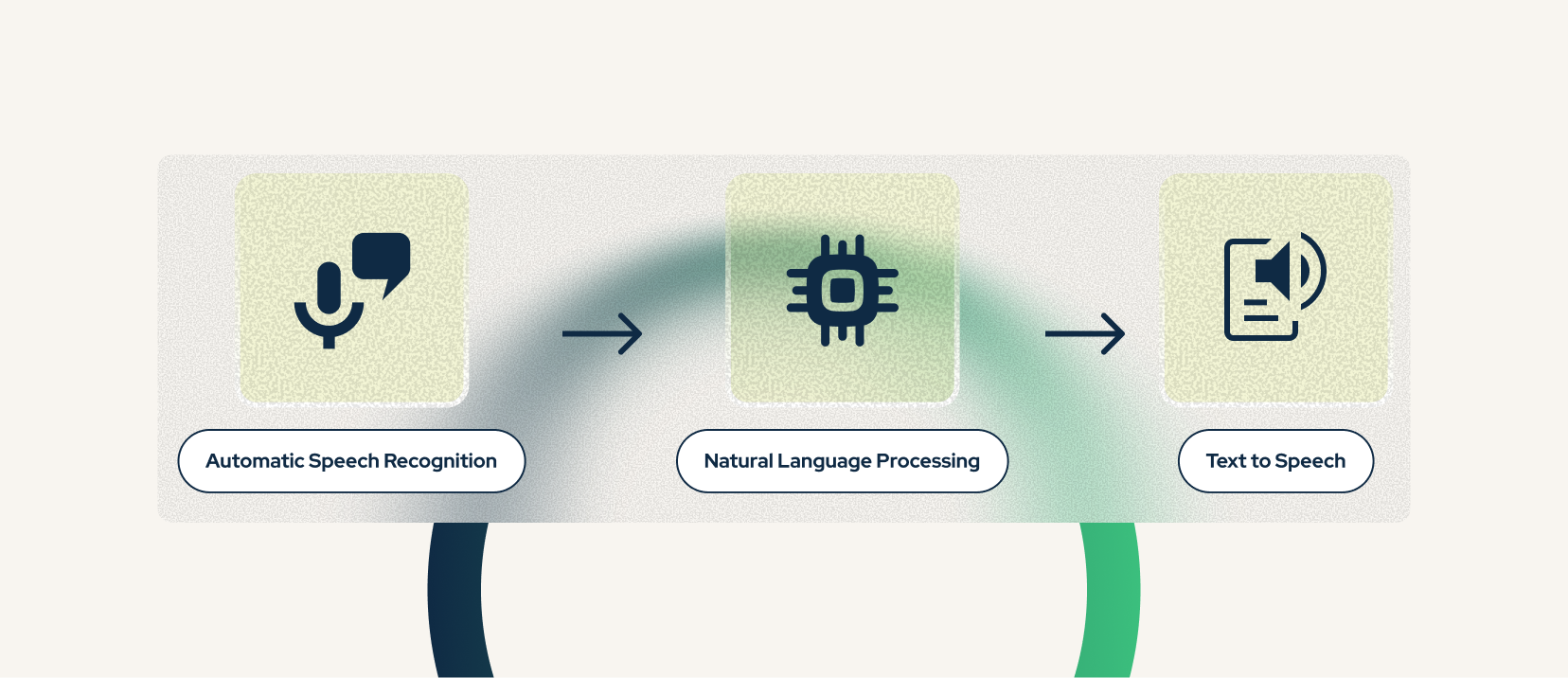
- Speech-to-Text (STT): This step listens to your spoken words and converts them into written text. It’s powered by technology called Automatic Speech Recognition (ASR).
- Language Model (LLM): This is the “brain” of the system. It reads the text input, understands what you’re asking, and generates a response.
- Text-to-Speech (TTS): Finally, the AI takes the generated response and speaks it aloud using synthetic, yet human-like, voice technology.
This full loop, from listening to thinking, to speaking, happens in just a few seconds.
Why Businesses Are Moving Toward Voice AI
- Voice is fast: Speaking is often quicker than typing or navigating through menus, which helps keep conversations moving.
- Voice is accessible: Ideal for people with visual, reading, or motor challenges, ensuring you reach a wider audience.
- Voice is emotional: Tone and expression can convey empathy, urgency, and trust in a way text cannot.
- Voice is scalable: You do not need ten support reps to handle a thousand calls when AI voice agents can do it simultaneously.
These benefits translate into faster prospect engagement, more consistent follow-ups, and greater campaign reach without increasing hiring and training overheads.
Now, let’s explore the seven signs that your business could benefit from deploying an AI voice agent.
7 Signs Your Business Needs an AI Voice Agent
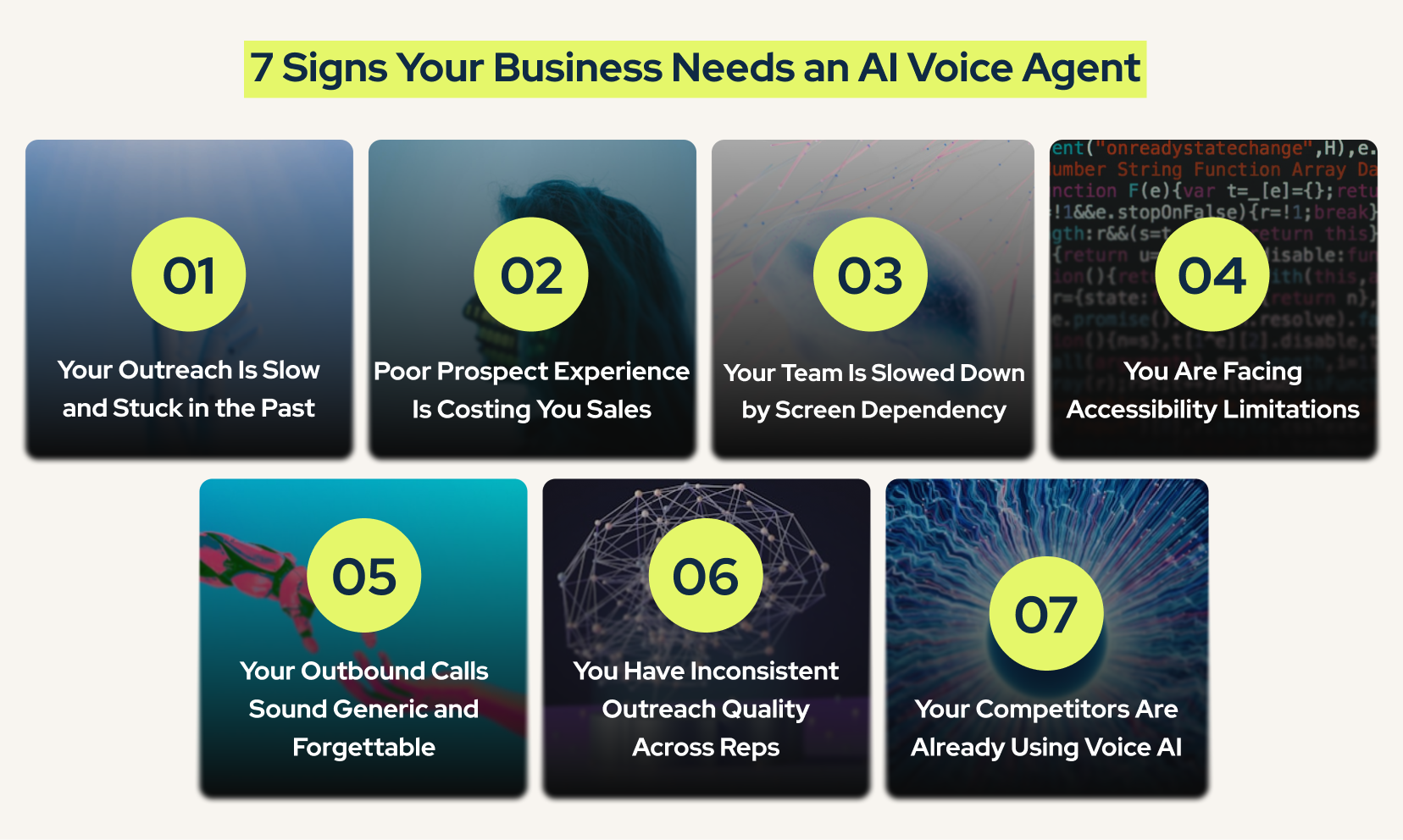
1. Your Outreach Is Slow and Stuck in the Past
If your sales or outreach team spends most of their day dialling numbers, leaving voicemails, and repeating the same qualifying questions, they’re losing valuable time that could be spent closing deals. And if you’re relying on a small team to manually call through large lead lists, it’s easy for follow-ups to be delayed, prospects to slip through the cracks, and opportunities to be missed.
What’s the fallout?
- Leads lose interest or move on to competitors if follow-ups aren’t timely
- Reps spend more time dialling than having productive conversations
- Inconsistent pitch delivery lowers conversion rates
- Burnout rises when high-value talent is stuck on repetitive calls
How AI Voice Agents Solve This:
- Automate first-touch calls – AI can reach new leads within minutes of form submissions or campaign engagement, boosting connection rates
- Qualify prospects at scale – Ask key questions, capture responses in the CRM, and hand only sales-ready leads to your reps
- Follow up instantly – Re-engage leads who did not answer the first time with a personalized callback
- Free human reps for closing – Let AI handle early-stage outreach so salespeople can focus on negotiating and converting
- Maintain 24/7 calling capability – Reach global prospects in their time zone without waiting for office hours
Outbound is not about how many numbers you dial; it is about how quickly and effectively you can start meaningful conversations. AI voice agents make that possible at scale.

2. Poor Prospect Experience Is Costing You Sales
In outbound sales, you often get one chance to make a positive impression. If your calls feel scripted, irrelevant, or poorly timed, prospects will disengage before you have the opportunity to build interest. Even a small disconnect in tone or timing can cause them to ignore future calls or move toward a competitor.
Hyken's research shows that 79% of customers are willing to switch companies if they believe another company offers a better experience. In outbound, that means every awkward pause, irrelevant question, or slow follow-up can directly cost you revenue.
What poor outbound call experience leads to:
- Prospects who ignore future outreach after one bad interaction
- Missed conversions despite having a strong product or service
- Negative reputation spreading quickly through word of mouth or online comments
How AI Voice Agents Help You Turn It Around:
AI voice agents are built to make outbound calls sound relevant, engaging, and timely. They can:
- Understand natural spoken language, even with background noise or different accents
- Detect interest, urgency, or hesitation in a prospect’s voice and adjust responses accordingly
- Progress the conversation immediately instead of asking for a callback or sending to voicemail
Example – AI voice agent following up on an event inquiry
A prospect fills out a form requesting more information about an upcoming webinar. Later that afternoon, the AI gives them a call:
Prospect: "Hi."
AI Voice Agent: "Hello, this is Alex from the events team. I saw you were interested in our webinar on improving warehouse efficiency and wanted to check if you would like me to reserve you a spot or share the agenda."
The call feels timely, relevant, and helpful, which keeps the lead engaged and more likely to convert.
AI voice agents remove the lag that often kills outbound momentum, turning interest into conversations while your competitors are still preparing to dial.
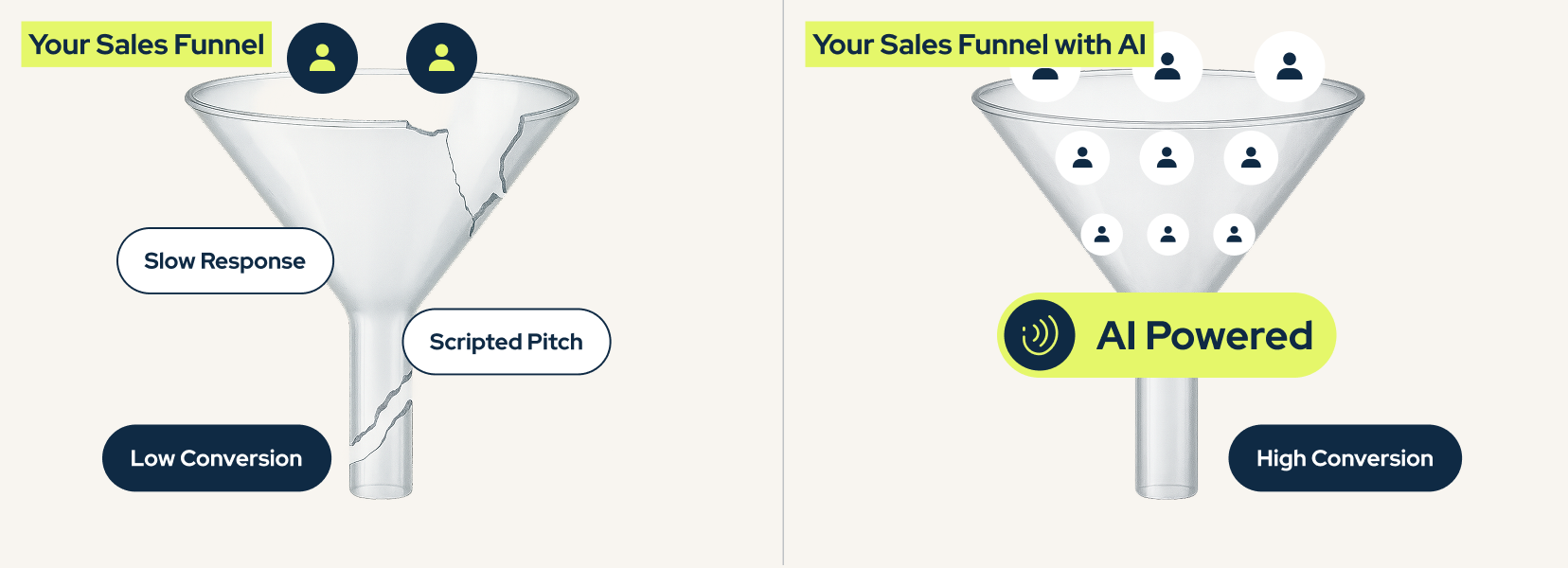
3. Your Team Is Slowed Down by Screen Dependency
In high-volume outbound campaigns, sales and outreach teams often juggle multiple tools such as dialers, CRMs, spreadsheets, and email, switching between them dozens of times a day. These small interruptions add up, breaking the flow of calls and slowing down the entire campaign.
The real issue:
Your reps know the conversation they need to have, but they waste time searching for prospect details, past interactions, or follow-up tasks. That disconnect between systems and execution can result in missed opportunities and reduced conversion rates.
How AI Voice Agents Solve This:
With an AI voice agent, much of the manual lookup, data entry, and navigation disappears. The AI can:
- Pull up prospect history and context before the call starts
- Log call outcomes automatically into the CRM without human input
- Trigger follow-up actions such as sending an email, booking a demo, or scheduling a callback, all within the same conversation
Example – Outbound campaign follow-up
Instead of a rep manually pulling up each lead’s record before dialing, the AI handles the initial call, confirms interest, updates the CRM, and books a follow-up slot directly on the rep’s calendar. The rep receives a ready-to-go appointment without extra steps.
This kind of hands-free process means faster call cycles, fewer admin delays, and more conversations per hour, which is critical in outbound sales where speed and volume drive results.
4. You Are Facing Accessibility Limitations
Many businesses unknowingly exclude a large group of users, people with visual, motor, or cognitive disabilities, because their digital platforms aren’t accessible enough. If your website or app mainly depends on visuals, buttons, or typing, you’re likely creating friction for users who rely on screen readers, assistive devices, or voice input to navigate.
According to the World Health Organization, over 1.3 billion people live with some form of disability. That’s a massive number of potential customers who may struggle to access your services if you don’t provide alternative, inclusive ways to interact with your platform.
This is not only a missed business opportunity but, in some markets, a compliance risk under laws such as the Americans with Disabilities Act (ADA) in the United States or accessibility directives in the European Union.
How AI Voice Agents Help:
- Support natural, two-way conversations that do not require screens or key presses
- Offer clear, step-by-step guidance for next actions, such as confirming interest or scheduling a follow-up
- Provide multilingual, plain-language communication to improve understanding
- Capture consent and preferences entirely by voice and store them in your CRM for future engagement
You’re not just adding a feature, you’re making your entire platform more human-friendly.
5. Your Outbound Calls Sound Generic and Forgettable
If every prospect hears the same flat opening, such as “Hello, this is ABC Company. I wanted to tell you about our services,” your outreach is blending into the noise. It does not matter if they have interacted with you before, engaged with your marketing, or shown buying signals. The call still feels impersonal and disconnected.
Prospects expect outreach that feels relevant, informed, and human. Research shows that brands excelling in personalization are 71% more likely to see better customer loyalty, and 91% of customer experience leaders believe AI can deliver it effectively. In sales, personalization can be the difference between a productive conversation and a quick hang-up.
How AI Voice Agents Deliver Personalization at Scale:
- Name recognition – Greet prospects by name when records are available
- Contextual memory – Reference prior conversations, downloads, or expressed interests
- Tone adaptation – Match the prospect’s energy level or respond with empathy if they sound hesitant or concerned
- Language flexibility – Adjust formality, style, and vocabulary based on the region or audience segment
Example – Personalized outbound follow-up
A prospect attended your webinar the previous week. The AI calls and says:
“Hello Taylor, thanks for joining our webinar on warehouse efficiency. I wanted to follow up to see if you have any questions about the solutions we covered, or if you would like to arrange a time with a specialist.”
By referencing a specific interaction, the conversation feels intentional and relevant rather than random. AI voice agents make this level of personalization possible across thousands of calls, which is nearly impossible for human teams to maintain consistently.
Personalization in outbound is not just a courtesy. It increases engagement, builds trust, and moves prospects further along the buying journey.
6. Inconsistent Outreach Quality Across Reps
If you have ever listened to recordings from different sales reps, you might notice major differences in how they handle calls. One might be overly casual and skip important qualifying steps. Another might forget to ask key questions. A third might follow the process but take too long to get to the point.
Inconsistency might not seem like a big problem in a single call, but when it happens across hundreds or thousands of outbound conversations, it leads to lost opportunities, lower conversion rates, and a weaker brand reputation. Prospects expect a certain standard when you reach out to them. If they get a very different experience each time, trust drops and engagement suffers.
How AI Voice Agents Ensure Consistency:
- Follow the same qualifying process every time without missing steps
- Ask all the right questions in the right order
- Avoid errors or misinformation while still sounding natural and conversational
- Maintain a friendly, professional tone across every single call
Example – Consistent lead qualification in an outbound campaign
You launch a large-scale campaign targeting 2,000 event attendees. The AI calls each lead to qualify interest:
- Confirms their name and company
- Asks about their current needs
- Offers a relevant next step, such as booking a demo or sending product information
- Logs every answer directly into the CRM
Every prospect gets the same structured experience, no matter when the call happens or who else is on your team.
Consistency in outbound protects your brand, reduces the need for extensive training, and ensures every lead is evaluated fairly and efficiently.
7. Your Competitors Are Already Using Voice AI
AI voice agents are no longer a future concept. They are in use right now, and there is a strong chance your competitors are already using them.
If you’ve seen rival brands offering:
- Faster phone support
- 24/7 availability
- Personalized voice-based interactions
- Automated follow-up calls or surveys
...there’s a good chance they’ve already implemented voice AI. And if you’re not moving in the same direction, you're at risk of being left behind.
In sales, even small efficiency gains can add up quickly. Faster follow-ups, higher connect rates, and consistent pitch delivery can compound into a significant competitive advantage over time.
How AI Voice Agents Help You Stay Ahead:
You do not need to replace your process entirely on day one. AI voice agents can be introduced gradually, starting with simple but impactful outbound use cases such as:
- Automated lead follow-up calls after form submissions or event sign-ups
- Booking or rescheduling appointments without manual intervention
- Qualifying prospects through structured voice screening
- Offering multilingual outreach without hiring additional staff
The Competitive Advantage:
By adopting early, you give your business time to learn, refine, and scale before competitors using AI reach full efficiency. This translates into:
- A more responsive outreach operation
- A modern, forward-thinking brand image
- A better prospect experience that feels faster, smarter, and more relevant
The sooner you integrate voice AI into your business, the sooner you start building a long-term advantage.
Final Thoughts
In sales, timing, consistency, and personalization can be the difference between winning a deal and losing it to a faster competitor. The signs are clear. If your outreach is slow, generic, or inconsistent, you are leaving opportunities on the table.
AI voice agents are no longer experimental tools. They are proven to scale conversations, reach prospects at the right moment, and deliver a consistent experience every time. They help your team focus on closing deals instead of burning hours on repetitive calls, all while giving prospects the fast, relevant, and human-like conversations they expect. They also reduce the high costs of hiring, training, and retaining large sales teams, allowing you to achieve more with fewer resources.
Ukti AI specializes in high-volume outbound voice campaigns that feel personal, timely, and effortless for your prospects. From instant lead follow-ups to multilingual qualification calls, we help you close the gap between interest and conversion. Book a quick demo to discover how Ukti AI can elevate your voice strategy.
.png)

